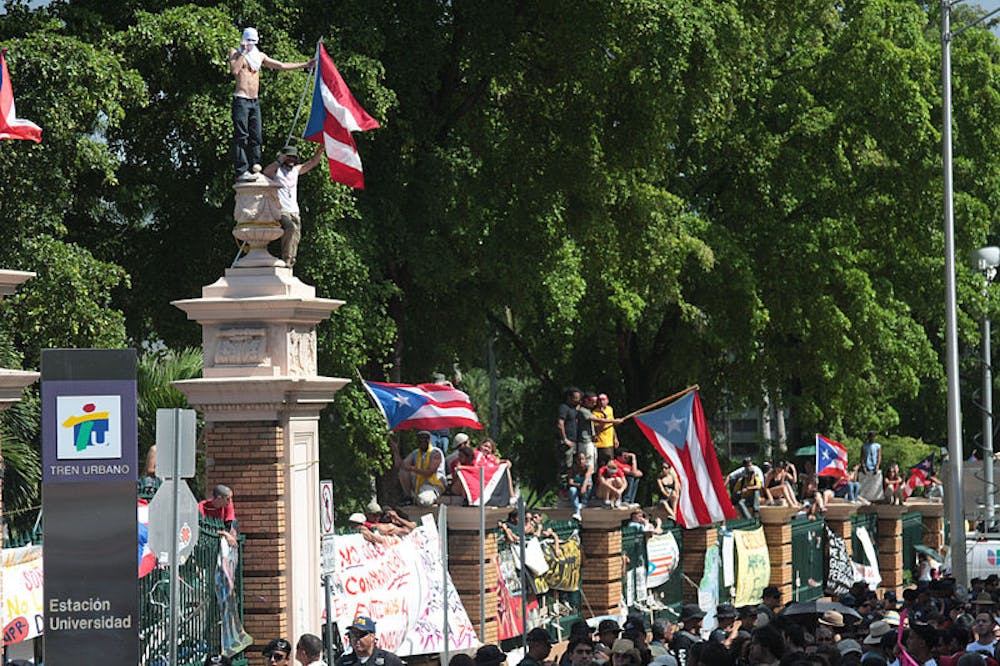In the wake of Hurricane María, the Brown community has led several efforts to provide aid to the devastated island of Puerto Rico. Most recently, the University announced that Brown would host students from the University of Puerto Rico to help them continue their studies while the island struggles to get back on its feet. Brown is covering tuition, fees, housing, meals and other expenses, eliminating most economic obstacles for the students accepted into the program. The community is working hard to help the 25 students already on campus get adjusted with courses, campus life and the new setting. Brown has become a leader in aid efforts amongst American universities with this commendable act of compassion and solidarity. Yet it is essential to remember that only a very small group of the most high-achieving students from Puerto Rico have been accepted, an understandable limitation, but one that does not reflect the number of students in need. The demand for this kind of action from private institutions highlights the critical situation in which UPR finds itself and the implications of this crisis for all of Puerto Rico.
UPR is one of the greatest cultural and social projects in the island’s history. It was founded in 1903 with only 273 students. Today, UPR is an internationally recognized institution that provides financially accessible higher education to around 60,000 students. Furthermore, UPR has remained dedicated to developing and transmitting knowledge for the good of all the community; it strives to be an institution by and for the people of Puerto Rico and has time and again proven to have achieved this purpose.
In its early history, the university played a significant role in helping transform Puerto Rico from an agrarian society into a modern one. In the past decade, as Puerto Rico faced fiscal crisis, UPR became the most powerful voice of resistance against forces that have placed the needs of exploitative colonial structures over those of the island. Just before the hurricane, students shut down the university with strikes to protest proposed cuts in funding and increases in tuition. These policies — proposed by Puerto Rico’s Financial Oversight and Management Board undemocratically imposed on the people of Puerto Rico by the U.S. Congress — were in direct opposition to UPR’s core values and would have forced a significant portion of the student body to drop out. In addition, on May 1 students and workers’ unions mobilized much of Puerto Rico in a general strike against the financial oversight board that served to further highlight the university’s civic leadership.
While these recent efforts to protect the University of Puerto Rico are noble and, arguably, necessary, it is undeniable that they have caused serious turmoil in the community. Hurricane María has worsened the situation, as the university is now facing rebuilding costs and a lack of electricity, as well as a faculty and student body struggling to survive. Furthermore, UPR continues to be one of the first institutions to face cuts, despite the fact that it has historically been the island’s most powerful tool for development. This combination of issues has prompted a mass exodus from the island. While this is true throughout all of the population, so much so that there are more Puerto Ricans currently living outside of Puerto Rico than there are on the island, the trend has particularly impacted higher education. Puerto Rico’s attempts at recovery become increasingly difficult when it is unable to provide the support and educational opportunities to those most equipped to make a real difference on the island.
Universities have always facilitated the open exchange of ideas and social development, a reality that is especially relevant in Puerto Rico. It is important to understand that a threat to this kind of space anywhere in the world is a threat to all of us who benefit from intellectual freedom and opportunity. Students, faculty and administrators at Brown have already proven their commitment to Puerto Rican education by supporting affected students. However, this is only a temporary solution. These same issues will continue to challenge Puerto Ricans long after this generation of students graduates. It is time for universities across the country, including UPR, to develop a discourse that addresses how essential higher learning is to intellectual growth and democracy. And it is time for U.S. students to learn from UPR students who have sacrificed and continue to sacrifice so much for the ideal of education, and to follow their lead in becoming agents of change.
Marysol Fernandez ’21 can be reached at marysol_fernandez@brown.edu. Please send responses to this opinion to letters@browndailyherald.com and other op-eds to opinions@browndailyherald.com.





